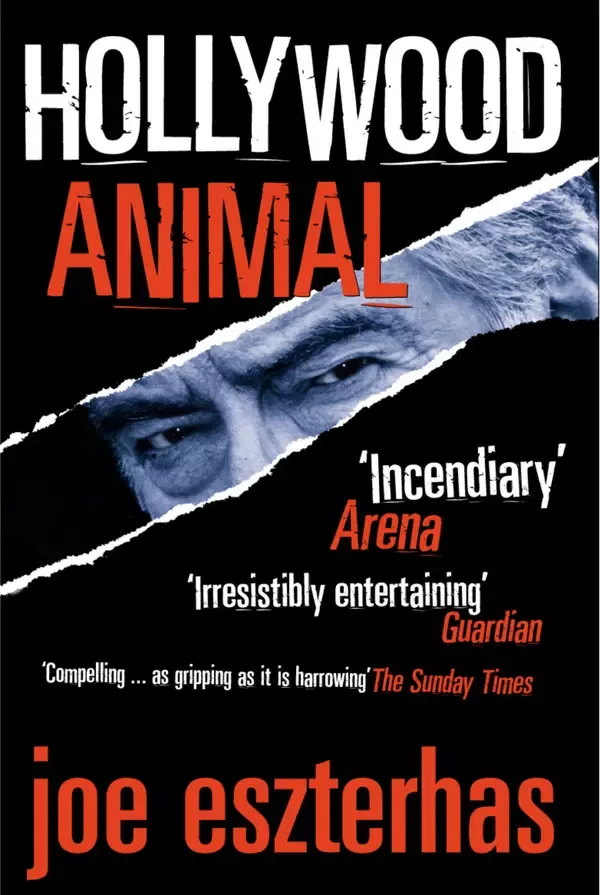Tinseltown's Unlikely Revolutionary
Published on 27th September 2021

Hollywood Animal by Joe Eszterhas is available on Borrowbox.
The 80s, a decade when erstwhile hippies drank the neo-liberal Kool-Aid and began asset-stripping, out-sourcing and wheeling and dealing for Manhattan Chase and Lehman Brothers, brought to end the post war consensus and heralded in an era of bodacious selfishness and excessive consumption.
Hollywood played the part of ideological adjunct to Reaganomics by churning out public service/Big Government bashing films such as Ghostbusters (1984), Die Hard (1988) and Home Alone (1990), and anti-Communist movies Red Dawn (1984), Top Gun (1986) and Rambo III (1988). Market driven policies led to a permanent attack on veritable institutions - iconoclasm was in vogue if it meant earning money at someone else’s expense.
An unintended consequence of the fetishism of the filthy lucre was the unlikely rise in the Hollywood power hierarchy of the screenwriter. Often seen as being somewhere below the status of key grip and somewhat higher than Best Boy in the echelons of the production of a film, the woes of the screenwriter in Hollywood is often told in films such as In A Lonely Place (1950), Sunset Boulevard (1950), Barton Fink (1991), and Mank (2020).
Hollywood producers and executives treated the screenwriter as an indentured servant until a hirsute Hungarian started making a whole lot of Chicken Mole for Hollywood. As described in Hollywood Animal, Joe Eszterhas changed the dynamic of the relationship between producer and screenwriter. This change in relationship status would not have been possible without Eszterhas writing the screenplays for some of the best and more importantly, some the biggest grossing movie screenplays of the 80’s.
Arguably the greatest thriller of the 80’s, Jagged Edge (1985), portrays an America obsessed with extreme violence, sex and money. What sets it apart is it’s impeccable casting - Jeff Bridges, all laconic charm and effortless charisma (‘The Dude’ if he was a Republican); Glenn Close, intelligent, vulnerable, kick-ass shoulder pads, and fighting the odds in the male dominated milieu of the law; and Robert Loggia as the roughly hewn and cynical Private Eye (a homage to Jack Warden’s role in The Verdict). Whilst it is adroitly directed by Richard Marquand (The Return of the Jedi), it is the script by Joe Eszterhas that turns Jagged Edge from a Pit Pony into a Thoroughbred.
The film opens with the bravado and disturbing murder of Jack’s (Bridges) rich socialite wife - he is immediately suspected - the motive: greed. He looks like he is bang to rights until he hires the compromised, yet ambitious and canny lawyer, Teddy (Close). Inevitably, Teddy falls for Jack’s magnetism - does this colour Teddy’s sound legal judgement? These tropes appear in many of Eszterhas' scripts, especially the box office behemoth Basic Instinct (1992); the movie opens with a stylistic, yet maximal violent murder; the suspect is attractive and dangerously charismatic; the investigator falls under their malevolent mojo.
After writing the scripts for F.I.S.T. (1978), Flashdance (1983), Blue Thunder (1983), and Basic Instinct, Eszterhas commanded up to $3 million per screenplay. His work was brash and like the man himself, they were big and on the whole, not at all subtle. In an industry where writer’s were seen as second class citizens and paid accordingly, Eszterhas transformed the means of production for screenwriters until his Waterloo, Showgirls (1995). In his ribald and revealing autobiography American Animal ,he describes how he would routinely intimidate Hollywood producers and moneymen by bringing a hunting knife to meetings (apropos of Jagged Edge?) .This book, much like his screenplays, reeks of machismo.
The Monetarist and Conservative orthodoxy prevailing in Hollywood in the 1980’s made mainstream film scripts countering these dogmatic nostroms difficult to produce, unless you were the one man cash cow, Joe Eszterhas. Eszterhas teamed up with the arch critic of American foreign policy, left-wing director Costa-Gravas (Z (1969), Missing (1982)) to make Betrayed (1988), exploring the support of White Supremacy in small town and rural America, and the beautiful Music Box (1989), concerning itself with how perceived respectability disguise far-right attitudes to Race and The Holocaust. The dialogue between the peerless Jessica Lange and Armin Muller-Stahl proves there is more to Joe Eszterhas than ultra-violence and Sharon Stone’s vagina.
Borrow more DVDs : Ghostbusters, Die Hard, Home Alone, Red Dawn, Top Gun, Rambo III, In A Lonely Place, Sunset Boulevard, Barton Fink, Mank, Jagged Edge, The Verdict, The Return Of The Jedi, Basic Instinct, F.I.S.T., Flashdance, Showgirls, Z, and Missing.
Submitted by Tom in Drumcondra Library.